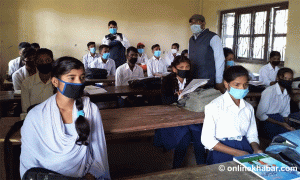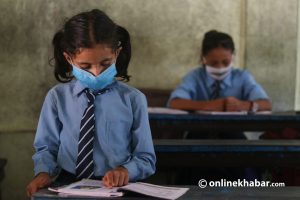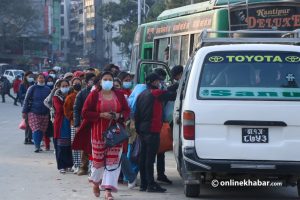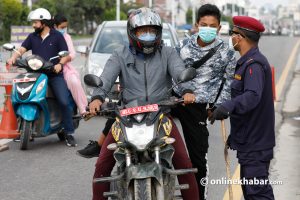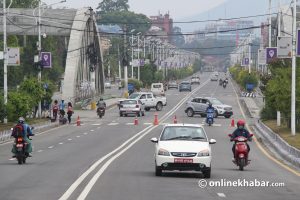
In Nepal, the lockdown imposed by the government seems to have taken a longer route with no alternatives. The increasing cases of coronavirus infection, with each passing day, have caused dismay and trepidation among the general public. In almost all media outlets, the pandemic has been in the driving seat for months, traumatising the general public with the fear of infection and death. Although this disease hit the globe as a fast-spreading and ruinous viral infection, lately, it is not concealed from the general public, as experts in diverse fields of study have strongly indicated, that it does not take long for this health crisis to ravage our economic system and cause a famine.
So, how Nepal, as a least developed country with a crashed economy, import dependency, and a fragile supply chain, is preparing to face this crisis is a question of this time.
Covid-19 has global consequences
According to the new figures from the World Food Programme, over a quarter of billion people around the world may face acute hunger by the end of 2020 because of the coronavirus pandemic. That figure nearly amounts to double the number of 135 million people who currently (before the pandemic) face acute hunger as per the Global Report on World Food Crisis 2020. So, it is likely that the problem that arose as a world health crisis by the beginning of 2020 will bring about another world crisis by the end of this year. There goes a saying by Marcus Garvey that ‘Hungry men have no respect for the law, authority or human life’, which has also been recently justified by the protest in the Chilean capital, Santiago, amidst the lockdown. Recently, similar instances have begun being reported from other parts of the world also.
Our bitter reality

Despite being lauded as an agricultural country, Nepal’s performance in food production has not been able to reach its mark on self-sufficiency. Although about two-thirds of the population is engaged in agriculture, the sector’s contribution to the GDP has been only around 27 per cent. In the fiscal year 2018/2019, Nepal imported agricultural and livestock products worth Rs 224 billion. Heavy reliance on import, even for basic foodstuffs for two meals a day, has posed a threat of food scarcity to the government.
As the rest of the world is also enforcing lockdown to contain the virus, the strategy of the Nepal government to maintain the food supply is challenging. The food imports are sure to shrink as the supply chain is disconnected.
Social distancing and lockdown have left the country with fewer labourers in the field to grow, harvest, and process the crops. As a consequence, the crops are rotting in the field. Further, the seeds, pesticides, and fertilisers are not easily accessible to the farmers, adding more problems to the crop sowing in the upcoming season. The disturbances in the movement of food containers and trucks and extending border restrictions have also resulted in the spoilage of perishable products. The limited supply of goods has already led to an increase in the cost of that stuff, while the purchasing power of general people is decreasing, which might further worsen the situation.
Anguish of citizens
Despite the worldwide coronavirus spread affecting the whole of humanity, it deepened the social division existing between the rich and the poor. The poor are the ones most affected by the virus; they are going hungry and facing the fear of striving. In Nepal, there are millions of people whose life was already hanging in the thread even before the start of the pandemic. According to World Data Lab, seven per cent of our population is living in extreme poverty, and the situation is becoming horrendous with each passing minute. The rich people have stocked up the foodstuffs to adjust with the lockdown routines whereas the poor ones have been skipping meals so that the stock would not run out soon. Recently a story of a Nepali journalist living in isolation hit the social media, depicting the scenario of Nepalis fighting the disease with mere water and biscuits. Poor nutrition and resulting in weaker immunity leave people of any age group vulnerable to many more diseases.
 The condition of many daily wage workers and labourers who have difficulty feeding their families even once a day cannot be explained in words. They have battled not only against the deadly virus but also against hunger every moment of every day, respecting laws of the government. How long are the poor supposed to endure the pain and suffering, when the only policy the government is undertaking to tackle the coronavirus is the extension of the lockdown?
The condition of many daily wage workers and labourers who have difficulty feeding their families even once a day cannot be explained in words. They have battled not only against the deadly virus but also against hunger every moment of every day, respecting laws of the government. How long are the poor supposed to endure the pain and suffering, when the only policy the government is undertaking to tackle the coronavirus is the extension of the lockdown?
Bracing for the future
The coronavirus effect has struck all the economies of the world. As a result, many states are limiting their exports because of uncertainty that tomorrow holds. So, it is completely left upon us to take a step to battle out this period.
There has been a drastic change in consumers’ buying habits, which must be taken into consideration at the moment. The government should prioritise the foodstuffs and should grant access to them along with other agro-inputs. The large area of uncultivated fertile land in the rural areas and the millions of youth returning unemployed from abroad, if articulated together with attractive packages and programmes, can not only solve our problem of food shortage and unemployment at present but also pave a way towards self-sufficient sustainable future. Regarding supply management, e-commerce could work perfectly fine, which is also in consonance with social distancing. Social safety nets or relief packages can be provided to those who are the most vulnerable, which could be granted in the form of either cash or kind. Individuals themselves can play a vital role by avoiding panic buying and hoarding foods.
Hunger is the ultimate challenge
A hungry person cannot distinguish right and wrong; the one only looks for any way to get food. So will that hungry stomach still follow the government’s order of lockdown when their family’s life is at stake? The case of RV Dudley and Stephens shows a situation in which the defendants were shipwrecked by a storm and left stranded in an emergency boat for more than 20 days. They, then, killed a young boy accompanying them to save their lives from starvation. So, it cannot be denied that we soon might be strangled in such a situation in which hunger will make us do things that we never dreamt of. It is the responsibility, not just the government but also of all citizens to protect ourselves and also the ones in need of help during this time of crisis. It is only through the collective effort of all that we can battle out through this pandemic.
Khanal is a law student.




